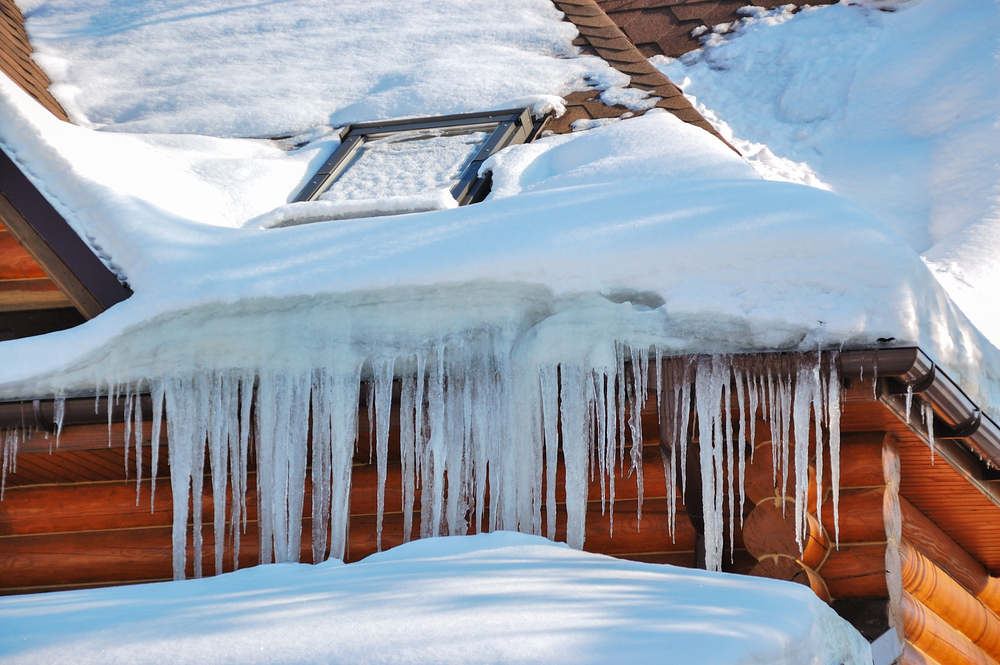From Falling Trees to Frozen Pipes: 4 Big Wintertime Insurance Claims

Updated January 2019
While winter weather may not sound like a big deal to some, it can lead to costly – and even deadly – hazards around the house.
In fact, winter weather is the third biggest reason for all property insurance claims from catastrophic events, behind events like tornadoes and hurricanes. The Insurance Information Institute found that winter storms accounted for $30.4 billion in catastrophe losses between 1996 and 2015 and represented 7.5% of all claims during that period.
Research shows that the costs associated with wintertime property damage are increasing at an alarming pace. In 2015 alone, Munich Re reports that winter storms caused roughly $3.5 billion in insured losses – a $900 million increase from 2014’s losses. Prior to 2014, winter weather claims averaged roughly $1.2 billion per year, according to The New York Times, or about one-third what they cost today.
What’s driving up the price of winter storm damage repairs? Here are some of the top causes of property insurance claims in the winter:
1. Snow and ice damage
Snow and ice are heavy, so they can easily collapse a roof on an aging structure. When the weather gets bad, it’s easy for ice to form on the roof if the gutters are clogged. Blocked gutters can form an ice dam, which creates icicles and further weighs down the roof and gutter systems.
Even melting snow and ice can lead to significant water damage for a roof or foundation, leaving a home vulnerable to leaks or, come springtime, pests. Mice, squirrels, and insects that enter through rotted wood or a cracked foundation can do further damage to a home.
2. Fallen trees
Just as snow and ice can weigh down a roof, they can have the same effect on trees. And the closer those trees are to a home, the riskier they become during winter. Insurance experts estimate that collapsing trees result in average property claims anywhere from $3,000 in some parts of the country all the way up to $10,000 in areas like the West, where the trees tend to be larger.
In some cases, the wind can snap off a weak tree limb, sending it to the ground or onto the roof. During a large enough storm, though, it’s possible for an entire tree to fall onto a structure and do serious damage and potentially put homeowners’ lives at risk.
3. Frozen pipes
Cold weather can impact the interior of a home just as much as the exterior. A frozen pipe can burst and cause a flood. This means homeowners pay for plumbing repairs along with having to replace damaged flooring or drywall. Experts estimate that the average claim for frozen pipe damage is around $18,000, much of which comes from floor and wall repairs, though it all depends on how much damage the water caused.
4. Fires
A cozy fire in the fireplace, an illuminated Christmas tree, and a glowing display of candles may sound like the perfect setting during the holidays, but those little details all represent enormous hazards if left unattended.
Blocked chimneys can lead to a fire, and they can fill a home with smoke and carbon monoxide, the latter of which can be deadly. Christmas trees can catch fire if they’re too close to a heat source or strung with lights that have worn-out electrical cords. And December is the month with the most home fires originating from candles, but no matter what season, candles should never be left unattended.
How do insurance carriers solve these winter weather woes?
Because claims adjusters need to complete property inspections in a timely fashion, they need all the information about a property they can get. Yet manually measuring the roof or walls of a home can slow down the claims process for customers, leaving them – quite literally, in some cases – out in the cold. Accessing relevant property data beforehand can help insurance claims professionals move the process along more smoothly.
The coldest season of the year can sometimes be the most unpredictable. By maintaining the home and watching out for hazards, homeowners can avoid the worst of the winter. If something does go wrong, however, insurance adjusters can be there to help property owners recover.
